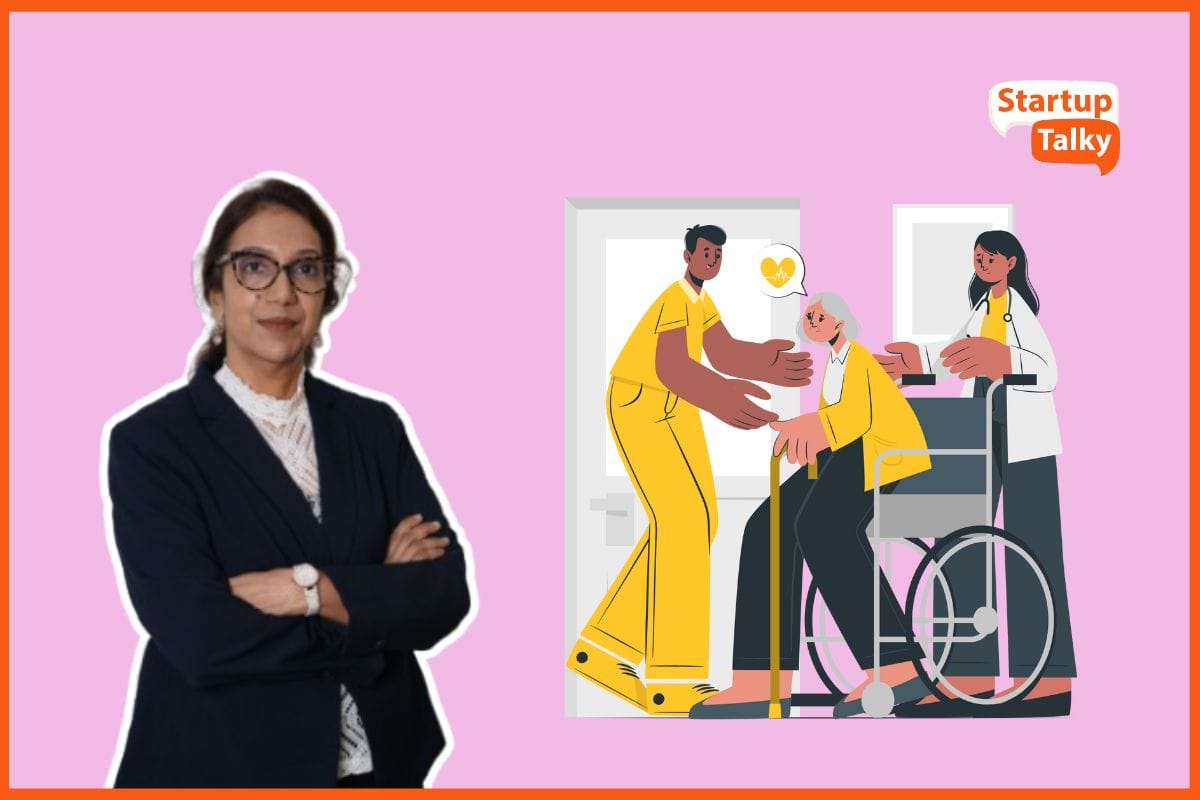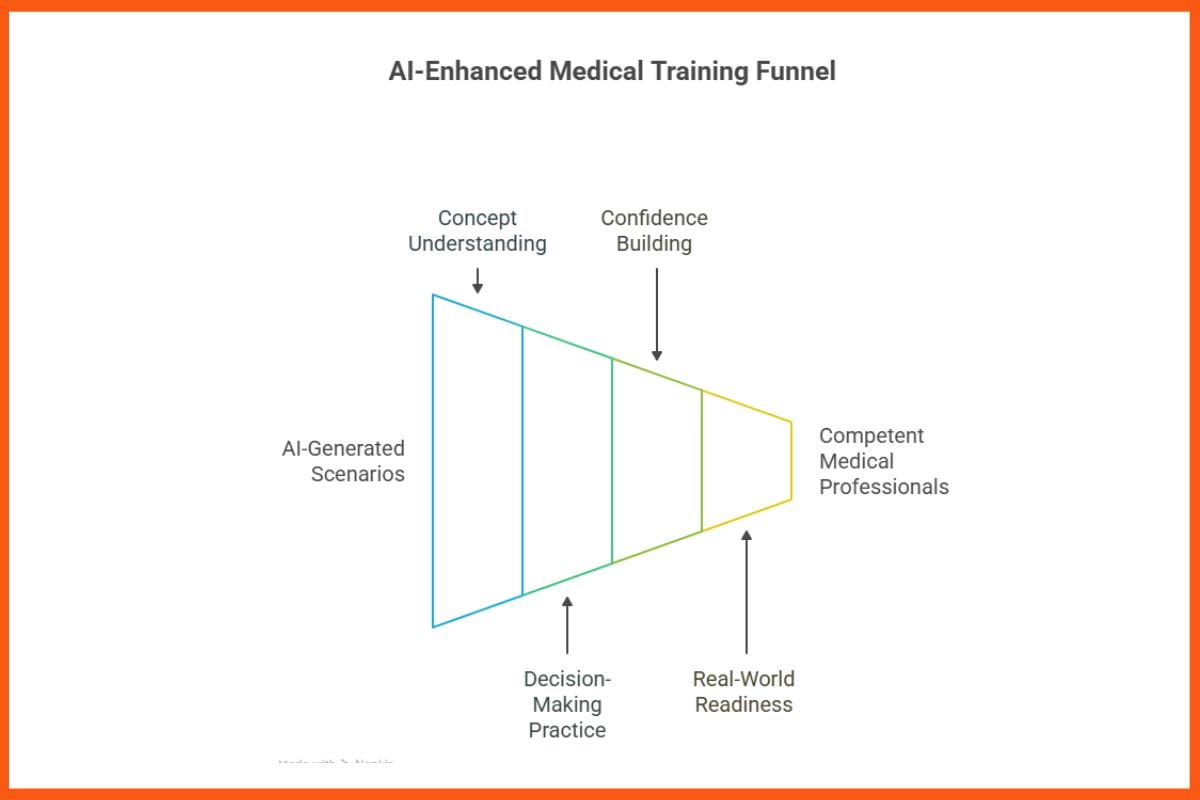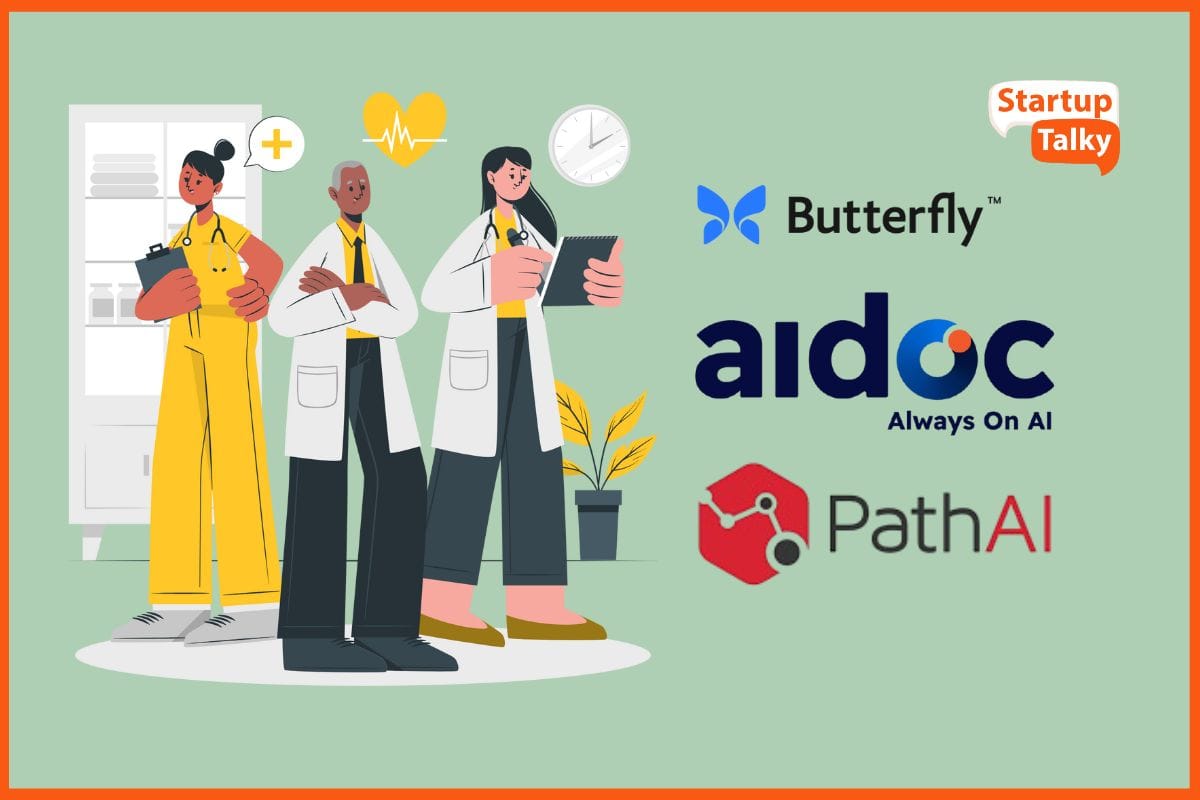
This article has been contributed by Dr Vaishaly Bharambe, MBBS, MD, PhD-Anatomy Counsellor and Medical Educator. Founder: VB Anatomy Academy (YouTube channel)
There has been a rapid rise in artificial intelligence (AI), and this is reshaping nearly everything in our modern life. So it goes without saying that medicine is not an exception to this. Across the world, healthcare systems are under immense pressure, the number of the patient load is increasing, the complexity of diseases as we begin to understand them have placed further demand for treatment, there is more demand for precision of care, there is tremendous amount of legal answerability, and the pressure on the medical world is immense.
Into this world, AI has come as a powerful friend and ally. In simple administration, it is able to take stock, it is able to note the number of patients visiting a hospital regularly, it is able to follow up on patients appointments, able to give hospital possible predictions of patient load, and so much else. It has also become an ally in the form of apps, where it is helping the clinicians to make decisions, which are often transforming their medical practice.
So there is a dependency of the medical world on AI. Now, if this is the extent to which AI is involved in the medical treatment, running of hospitals and so on, then shouldn’t the medical student who is going to come out into this world after education, not be taught about this involvement of AI and the help of AI in the medical treatment?
What is it they need to know about AI? The future physicians need to be taught how to use AI, to what extent AI is involved in the machines that they are using, and the ethics of utilizing the AI for decision making, while remembering that final answerability remains that of the treating doctor.
How then can we prepare our future physicians for this digital world involving tremendous dependency on AI?
I think the start of integration of AI into the life of a physician can begin in the education period of the student itself. AI has become a powerful tool in any form of education today. More and more universities are using AI in various ways for education of students. So, the role of AI in the life of medical student should begin during the period of medical education. Today, AI is being used for personalized learning. For example, if a student is struggling with a subject, for example, say anatomy, the AI can become like a personal tutor, guiding that student towards simpler content, helping the student build up strength in the weaker areas, and then gradually placing before that student advanced concepts. This step-by-step guidance by the AI helps the learner cope with difficult subjects in a more gentle and tapered manner, helping them fill up the gaps in their understanding, building up concepts, and then reaching for more complex concepts.
AI is also capable of giving personalized feedback to the students. So, not only is AI capable of checking multiple choice questions that the student might have answered, but it is also capable of analysing longer, lengthy essays of students. So, for medical students who are buried under mountains of information, such guidance will become invaluable, especially because such personalized guidance is nearly impossible to get considering the number of medical students being trained on a daily basis all over the world and where the student to the trainer ratio is not enough to allow for such personalized feedback.

Not only does AI help the student learn, understand concepts, it is also of great use in providing safe environment for students to practice. It's able to create virtual patient platforms, creating patient histories, setting questions for students and testing the students to take clinical decisions in the given scenarios that are being presented by the AI without really harming the real patients. Such repeated exposure to artificial scenarios presented by the AI builds confidence and helps the students explore their own understanding of the disease and patient presentation before actually encountering real patients, making them better prepared to be able to take correct decisions in the real life.
Having trained in theory as well as practical, the student must also understand that the world they step into involves AI being a part of important investigations. For example, in case of radiology, AI is intricately involved in analysing x-rays, CT scans, MRIs. While not replacing radiologist himself, AI helps access a patient, highlighting abnormalities quickly, accurately and consistently. The advantage of AI here lies in the fact that it is consistent and it does not have the human element of fatigue, therefore, a little more reliable at times. Where training is concerned, the AI can also be used to train the student in the interpretation of radiological images.
 StartupTalkySubham Kumar
StartupTalkySubham Kumar
Similarly, in case of microscopy, say, be it histology or pathology, AI has become a powerful tool in reading and analysing these slides. During the training years, it can be used to sharpen the student's observational skills by showing the student the slide explaining what to look for and why and in the clinical practice, it helps the pathologists zoom in on the abnormalities in the slide presented. Even in the field of pharmacology, AI is always available to calculate dosage as per the weight of the patient. Parallelly, it is also sometimes available on the patient in the form of monitors that patients attach on their body and through which they get the correct dosage of the drug at all times.
Thus, the world student steps into already has deep involvement of AI in the functioning of the physician. The future physician must be made aware of the help they will be receiving from the AI, guiding them towards correct decisions, functioning as a powerful assistant. However, it is at this time that it becomes important to point out that this AI will always remain only that, an assistant.
There will be times when despite AI's recommendations, the physician's instinct might guide the physician towards some other diagnosis. This is the point where the physician's self-confidence and professional integrity will be greatly tested. It's very easy for the physician to fall into the trap of believing that AI knows better, but the judgment has to be that of the treating physician only. That is something that will take courage. Over a period of time, it may also happen that excessive reliance on the AI will erode the ability to make correct judgment calls. This also is something every physician will have to guard against.
 StartupTalkySubham Kumar
StartupTalkySubham Kumar
Another challenge that the physicians will soon face is that with the presence of AI, all the information related to the patient will become very difficult to keep completely confidential. It is at this time that the physician must realize the necessity for them to have adequate digital fluency and knowledge to make sure that the patient confidentiality is not breached because of the excessive use and exposure to AI. So with this will come the burden of necessity to educate themselves well in the digital medium.
So I'd like to conclude by saying that AI is not going anywhere.
The AI can guide the future physician towards the possible diagnosis. There will be more and more dependency of clinicians on AI. Now it is up to the future physician themselves to take a call how much they wish to depend on AI and how much they wish to continue to take critical patient decisions by themselves based on their own clinical acumen using AI only as an assistant. But they mustn’t forget that the final word must always remain that of the treating physician himself. Legal, ethical, and professional accountability will also always remain theirs.
 StartupTalkyVivek Dev Jacob
StartupTalkyVivek Dev Jacob
Original Article
(Disclaimer – This post is auto-fetched from publicly available RSS feeds. Original source: Startuptalky. All rights belong to the respective publisher.)